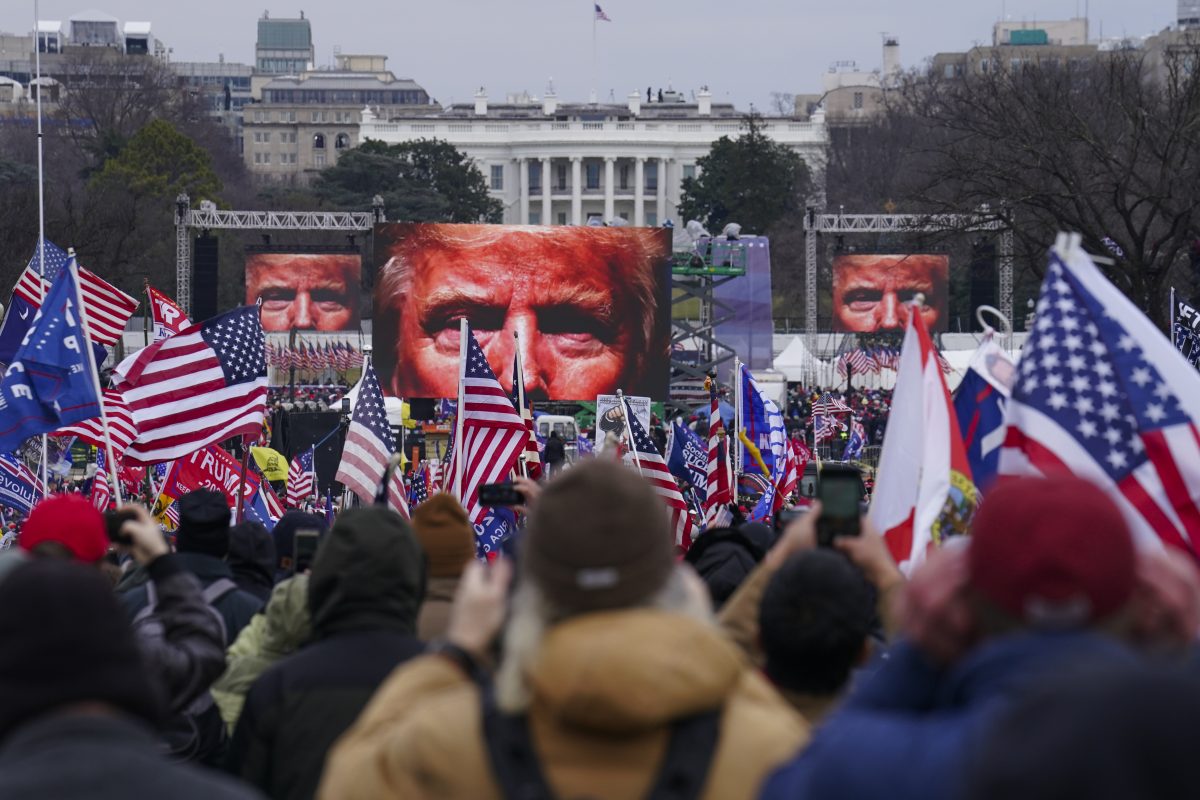
Remember this day.
That phrase will be repeated throughout the second Senate trial of Donald Trump this week. House managers making the case for conviction invoked it during the first session on Tuesday (Feb. 10). And they will return to it. Rep. David Cicilline from Rhode Island said during the opening arguments that the Trump tweet with that phrase “chills me to my core” because the president “sided with the insurrectionists, he celebrated their cause, he validated their attack.”

Brian Kaylor
But what chills me even more are the biblical echoes in Trump’s line — and the clear warning that churches must work harder to root out the pseudo-religion of QAnon conspiracies infecting our pews and even some of our pulpits.
On Jan. 6, with the Capitol still unsecured as police attempted to clear out the remnant of the pro-Trump mob that violently attacked the building, Trump tweeted out his call for his followers to “remember this day forever.” At that moment, glass shards and human feces still lined the Capitol’s hallway, and multiple people were already dead or dying. But Trump celebrated the day.
Although he told them to go home in that tweet, he also justified the attack as a response to his “sacred landslide election victory” being taken from him. That, of course, is a lie. He didn’t win. And it wasn’t sacred.
Because of that tweet, Twitter deleted it and locked his account. But the damage remained, as did the sacrilege.
Remember this day.
We’ve heard that language before. But it looked quite different.
“Remember this day and celebrate it each year as a festival in my honor,” God tells Moses in preparation for the night of the last plague.
Moses repeated the language in the next chapter to the people as he spoke about keeping the Passover each year: “Remember this day in which you came out from Egypt, out of the house of slavery.” One translation even puts it: “This is a day to remember forever.”
Remember this day.
The language sounds familiar, but the faith call differs dramatically. This remembrance in Exodus is to honor the sacred work of God, not that of President Moses or the Hebrew people. And it remembers a night when the people waited for God’s deliverance rather than violently seeking to take over the government.

Trump supporters participate in a rally in Washington, D.C., on Jan. 6, 2021. (John Minchillo/Associated Press)
The problem is that some who stormed the Capitol see themselves as the new chosen people, the new Israelites. So, they attacked police officers and busted windows and doors while carrying Christian flags, Jesus signs, or Bibles. This was, for them, a holy mission, a righteous crusade.
And their leader tweeted out approval, urging them to remember that day and to remember the sacred “victory.”
We’ve seen that in our Bibles, too.
We take the cup and bread since Jesus told us, “Do this in remembrance of me.” We remember the sacred day when he brought victory over death.
Remember this day.
But Jesus didn’t hide in the White House after urging Peter to grab some swords, flags, and a fuzzy hat with horns and then storm the Roman assembly. Rather, Jesus nonviolently submitted to death.
Perhaps the problem is we’re not good at remembering. If we remembered the Passover and, more critically, the crucifixion, we wouldn’t have seen Christian crosses next to Confederate flags and QAnon signs in that violent mob. What we’re seeing in these conspiracy theories about QAnon and a “stolen” election is really a new religion. It’s an alternative faith for a new lost cause, and its adherents often sit in our churches.
“Religious language appeals to religious people, but QAnon is not for Christians — it is a replacement, with its own messiah and demons, unrelated to Christianity and unmoored from the Bible,” explained Ed Stetzer of the Billy Graham Center at Wheaton College in Illinois. “As seekers of truth, we need pastors, leaders, and everyday Christians to address this conspiracy, and others like it, before others are fooled.”
It might be tempting to just move on, to forget Jan. 6, to treat the attack on the Capitol like an aberration. Many U.S. Senators are taking that position. But that ignores our responsibility for pursuing justice, confronting untruths, and building a better world. There are many still with their Jesus shirts, Bibles, and Christian flags following the drumbeat of this false religion preached by a liar with a messiah complex.
We must not look away. We must not pretend the threat doesn’t exist. We must challenge this heresy. We must bring people back to Jesus. We must help them to remember the exodus, the cross, the real sacred story.
